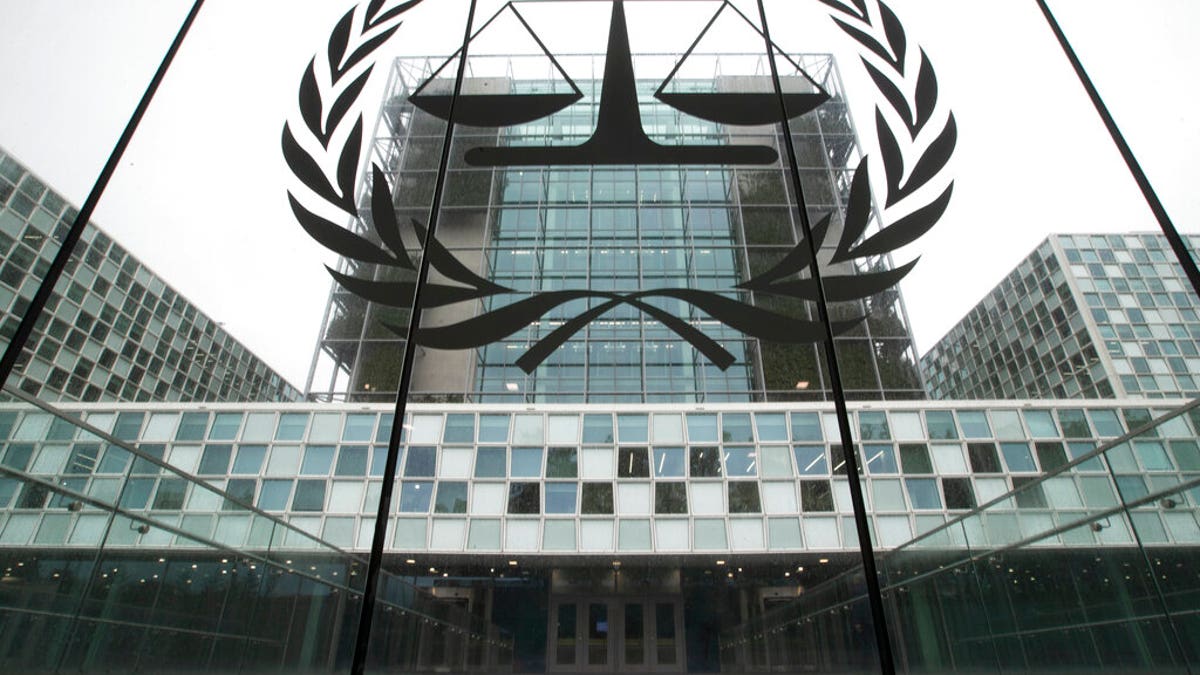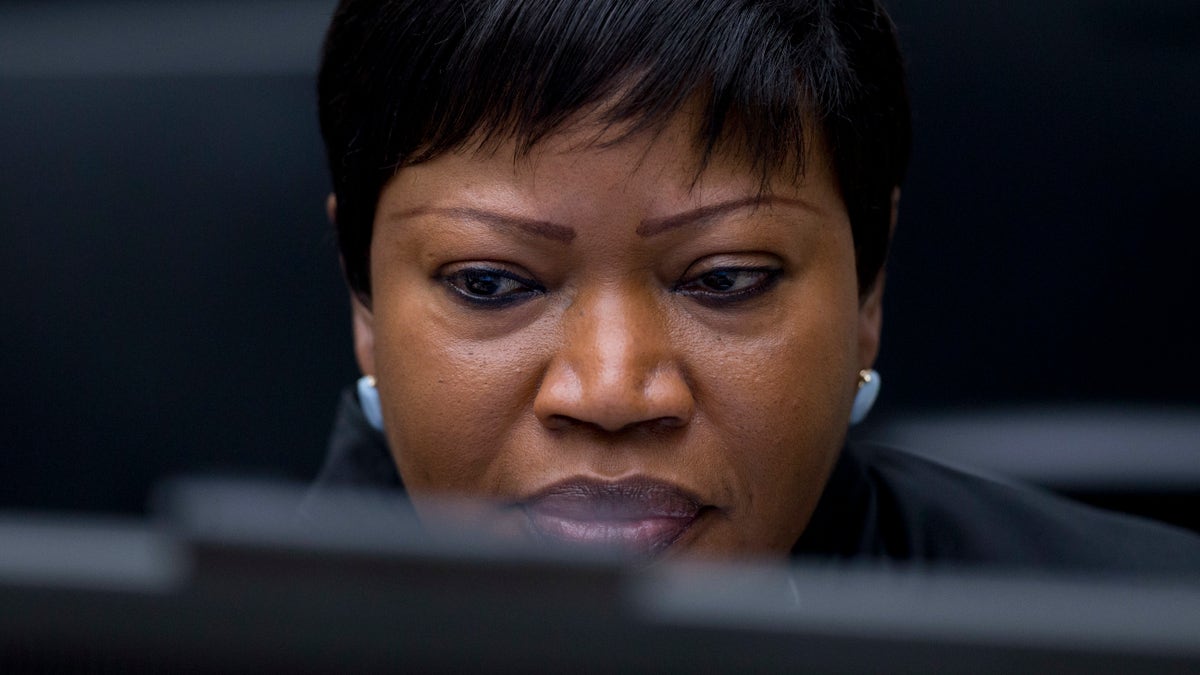The U.S. government made it clear in March that it would not cooperate with an International Criminal Court (ICC) investigation into alleged war crimes committed by U.S. military and intelligence personnel in Afghanistan, and late last week, the Trump administration doubled-down on its stance by issuing an executive order that paves the way for ICC employees and their families to be barred from entry to the United States and slapped with economic sanctions.
But are the actions enough to deter the legal body, which was established within the U.N. but proclaims judicial independence in its endeavor to bring war criminals to justice, from implicating U.S. citizens despite the U.S. not being a member of the court?
"The ICC is trying to impose its own view of international humanitarian law — what we used to call the laws of war — on American operations in Afghanistan. If the ICC were to rule against U.S. soldiers and agents, it could authorize states to arrest them and hand them over to the court for trial," John Yoo, a professor of law at the University of California at Berkeley and visiting scholar at The American Enterprise Institute (AEI) told Fox News. "The ICC is going too far. It is trying to exert power over a nation — the United States — that has refused to sign the treaty that created it."

-FILE- In this Thursday, Nov. 7, 2019 file image the International Criminal Court, or ICC, is seen in The Hague, Netherlands. Judges are set to deliver their decision Thursday March 5 2020, on an appeal by prosecutors at the International Criminal Court against a decision rejecting an investigation into atrocities committed by all sides in the Afghanistan conflict, including U.S. forces. (AP Photo/Peter Dejong, File)
Under the customs of international law, he continued, treaties do not govern nations that refuse to join them and consistently object to their norms.
"The United States is taking a stand not just for itself, but the idea that international organizations do not govern sovereigns, but that sovereigns govern International organizations," Yoo said.
UN WARNS CORONAVIRUS FALLOUT WILL LEAD TO THE NEXT PANDEMIC – GLOBAL STARVATION
The ICC's investigation started in 2017, and while the crux of the investigation is centered on crimes alleged to have been committed by both Afghan forces and the Taliban, The Hague, the Netherlands-based institution, has also pledged to probe U.S. personnel involved in "black sites" and what has become known as the "torture program" carried out by intelligence agencies.
While the U.S. government initially supported the creation of the ICC, which was founded by an international treaty and commenced its large-scale investigations in 2002, although it declined on a bipartisan basis to become a party on the grounds of sovereignty and concern that the court could then target Americans for military missions conducted abroad.
"The U.S. had already stated that it would not cooperate with the investigation, so the sanctions served to underscore the seriousness of U.S. opposition, and make clear to the Court that there would be ramifications for the decision to investigate American and allied officials and military personnel without consent," said Brett Schaefer, a senior research fellow for international regulatory affairs at The Heritage Foundation. "The ICC is supposed to operate under the principle of complementarity, that is, it only activates when it perceives national authorities as unwilling or unable to prosecute genuinely. The United States has conducted hundreds of criminal investigations into allegations from Afghanistan and elsewhere."
From his lens, this shows that the U.S. has taken allegations of detainee abuse extremely seriously, has policies in place to prevent further abuse and has investigated complaints lodged even though many proved to be false.
"The United States, under any fair reading of the facts, has complied with its obligations under domestic and international law, including the Convention Against Torture," Schaefer explained.
Attorney General William Barr also stated last week that the justice department had received "substantial credible information that raises serious concerns about a long history of financial corruption and malfeasance at the highest levels of the office of the prosecutor."

In this file photo dated Thursday, Jan. 28, 2016, Chief Prosecutor Fatou Bensouda waits for the start of the trial against former Ivory Coast president Laurent Gbagbo at the International Criminal Court in The Hague, Netherlands. The prosecutor of the International Criminal Court says she has had her U.S. visa revoked, in the first implementation of an American crackdown on the global tribunal. (AP Photo/Peter Dejong)
However, it remains unclear just how many individuals will be targeted by the U.S. government and when. Although the ICC has around 1000 employees, Secretary of State Mike Pompeo indicated that the sanctions would be imposed on a "case-by-case" basis.
And while some members of the European Union – namely Lithuania, Poland, and Romania – could also find themselves dragged into the ICC investigation and questioned over their role in hosting "black sites," a prospect Pompeo further underscored last week by pointing out that "those from NATO countries who fought terrorism in Afghanistan right alongside" America "could be next," the E.U. top brass are so far is siding with The Hague. The union's foreign policy chief Josep Borrell stated last week that he was still examining the details of the decision, but framed it as "a matter of serious concern … because we as [the] European Union, we are steadfast supporters" of the ICC.
Moreover, in a statement last week France's foreign minister Jean-Yves Le Drian said the government was "dismayed" by the U.S. action, and urged the President to reconsider and take back its retaliatory threat against the ICC, and the Netherlands foreign minister – the seat of the court – echoed the stance by noting he was "very disturbed" by the Executive Order.
DEFUND OR DISMANTLE THE POLICE? WHAT IT COULD MEAN
And Trump's order has also brought with it criticism from foreign policy experts within the United States.
"Just because one opposes the ICC investigating the actions of U.S. forces does not mean sanctions are the solution. Washington is addicted to sanctions and has seemingly forgotten we have many diplomatic tools to express displeasure without economic coercion that angers U.S. allies and anyone else who sees the ICC as something other than an enemy," noted Benjamin Friedman, an adjunct lecturer in International Affairs at George Washington University and policy director at Defense Priorities. "The ICC views its role as investigating things, including war crimes. It's a bureaucracy eager to justify itself and serve its mission, like any other."
Meanwhile, the move last week earned a thumbs-up from Israeli Prime Minister Benjamin Netanyahu, a longtime critic of the ICC, which he deems to be "politicized and obsessed with Israel" while ignoring the wrongdoings of nefarious regimes such as Tehran.

Israeli Prime Minister and head of the Likud party Benjamin Netanyahu delivers a statement in Petah Tikva, Saturday, March 7, 2020. (AP Photo/Oded Balilty)
Although Israel, like the United States, is not signatory to the ICC's foundational Rome Statute, ICC's top prosecutor Fatou Bensouda – who is heading the Afghanistan investigation – is reported to have informed the ICC's Pretrial Chamber earlier last week that a war crimes investigation would be opened against Israel over its protracted conflict with the Palestinians. The U.S. has previously cautioned that singling out Israel for crimes would bring with it significant blowback for The Hague.
"The ICC investigations of the U.S. and Israel violate both international law and the ICC charter. Because neither the United States nor Israel has joined the ICC, its investigations of their personnel violate the U.S. and Israeli sovereignty, including the fundamental international law principle that a treaty is binding only on its members," asserted Orde Kittrie, a senior fellow at the Foundation for Defense of Democracies, and a law professor at Arizona State University. "These investigations divert ICC resources away from the ICC's founding purpose: prosecuting the many particularly atrocious crimes which ICC member nations are themselves leaving unpunished."
He also highlighted that the investigations were "clearly driven by politics" and symptomatic of deeper problems plaguing such international bodies.
"The ICC has an abysmal track record. Since its founding two decades ago, it has spent over $1.5 billion and succeeded in achieving a total of only eight convictions – only four for major crimes," Kittrie said. "Rather than focus on improving its track record of prosecuting the many particularly atrocious crimes which ICC member nations are themselves leaving unpunished, the ICC's leadership has sought to mollify and distract some of its critics, especially those in the Third World, by going after the U.S. and Israel, two non-members with exemplary records of prosecuting their own service members."
Gerard Filitti, senior counsel at The Lawfare Project, concurred that both countries have highly developed judiciaries that are more than capable of holding accountable and punishing individuals accused of wrongdoing.
"The ICC was set up, essentially, to bring warlords to justice in countries with a corrupt judiciary that couldn't do that themselves," he explained. "American and Israeli courts have certainly held their citizens – including their service members – accountable for wrongdoings in a war zone."

Afghan National Army soldiers stand guard at a checkpoint near the Bagram base in northern Kabul, Afghanistan, Wednesday, April 8, 2020. (AP Photo/Rahmat Gul)
Despite the sanctions setback, which the ICC characterized as "an escalation and an unacceptable attempt to interfere with the rule of law" and "an attack against the interests of victims of atrocity crimes," the institution has vowed to continue with its investigation. According to Yoo, the ICC could still decide to bring charges against specific American soldiers, agents, and officials – and in that event, the U.S. "should go farther and start to sanction nations that support or cooperate with the ICC's investigation. "
"Japan, for example, is one of the largest financial donors to the ICC; the United States could re-examine how much it wishes to contribute to Japan's defense if Japan funds a court that is trying to seize U.S. personnel," he surmised.
CLICK HERE TO GET THE FOX NEWS APP
Filitti also underscored that there are many more tools the Trump team could potentially pull out if Americans stand to face any time of punishment for their operations.
"The Trump administration has many measures it can, and rightly should take. It can, for example, designated the ICC itself, blocking its assets and subjecting it to economic sanctions. Whether through sanctions, bilateral agreements, or diplomatic pressure, the Administration can put significant pressure on the ICC's financial resources," he added. "The Trump administration should also investigate the ICC officials participating in these investigations for their links to terrorism. It shocks the conscience that allegations made by terrorists and terrorist sympathizers can be taken seriously, not just delegitimizing the ICC but endangering American and Israeli sovereignty and the rights of their citizens."

